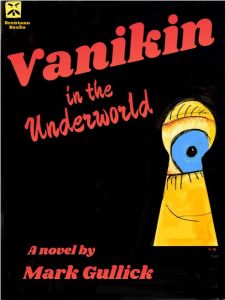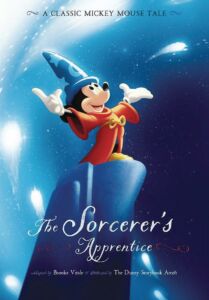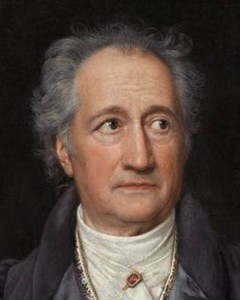When I was a boy my parents would take me to the cinema. (That’s the Proustian opener out of the way). It would be either my father or my mother but never both, as I had brothers five years younger than me, identical twins, and my parents would take turns looking after them (and they were a handful) while the other one took me to see a movie. I remember seeing Walter Matthau in the movie Prisoner of Second Avenue with my dad, and both my mother and I being scared out of our wits seeing Carrie. I also remember classic Disney films.
The scene in Disney’s 1970 animation The Jungle Book in which the monkey King Louis (voiced by musician and band-leader Louis Prima) sings the song “I Wanna Be Like You” (also known as “King of the Swingers”) and is later joined by Baloo the bear, poorly disguised as an ape, is still a favorite of mine, to be visited whenever I feel gloomy. The same applies to “Everybody Wants to Be a Cat” from Jungle Book follow-up The Aristocats. My father took me to see those. But it was a scene in the Disney cartoon Mum took me to see, Fantasia, which lingers in the memory even more strongly. Now, all these decades later, I think I know why.
The film’s most famous scene and my favorite (although my mum preferred the hippos in tutus dancing ballet to Ponchielli’s Dance of the Hours) is Mickey Mouse as the sorcerer’s apprentice. Scored by composer Paul Dukas, the cartoon was a separate piece until Disney realized it would never make its money back alone and amalgamated it into Fantasia.
I loved Mickey in his silly outfit and outsize wizard’s hat. I can easily visualize the broomsticks marching up the stairs to the castle with their sloshing pails of water. It never occurred to me that there was a literary source to Mickey’s antics. If anyone had told me that it was based on a poem by a classical European writer, I would probably have blithered about Hans Christian Andersen or Oscar Wilde. You may ridicule me in the comments section, I deserve it, but I only recently found out the provenance of Mickey Mouse’s misadventures with magic.
The original story was written as a poem by Johann Wolfgang von Goethe in 1797. As this was less than a decade after the French revolution, it is tempting to search in Der Zauberlehrling for some symbolic commentary. Whether Goethe would have liked it or not, however, I believe there is something more prescient than retrospective in his tale of the hapless student of magic who uses his master’s spells with disastrous results. The ominous subtext to the poem looks not backwards in time, but forwards.
The Sorcerer’s Apprentice, both in the telling of Goethe and Walt Disney, is a tale of Faustian excess, a mythos which may be with us still, told through the medium of comic mismanagement. The plot is simple, as the magician’s pupil waits until the master is sleeping before opening his great book and trying out the spells for himself. He has been attentive, a good student, but lacks his teacher’s knowledge of when to use the dark arts and when not to;
I have watched with rigor
All he used to do,
And will now with vigor
Work my wonders too.
Like Goethe’s even more famous practitioner of magic, Faust, the apprentice uses his master’s arts for frivolous reasons. Where Faust asked Mephistopheles to provide him with fruits out of season (something any supermarket does now without the need for an infernal pact) and the power of invisibility, enabling him to play pranks, along with a sort of Blu-Ray holographic Helen of Troy for Faust to gaze on, the magician’s pupil has simpler needs, and simply runs a bath with supernatural help.
The problem is that the broom animated by Goethe’s apprentice — and by Mickey Mouse — simply continues to fetch water until the bath is overflowing. And this persistence is because the apprentice has forgotten the command to make this magical mischief stop:
Ah, I see it! Woe, oh woe!
I forget the word of might.
Ah, the word whose sound can straight
Make him what he was before!
Ah, he runs with nimble gait!
Would thou were a broom once more!
Like many a fictional conjurer, the apprentice has forgotten that just as spirits may be summoned by words of power, so too they must be put down by others. Aleister Crowley may have been insane, but he stressed the danger of conjuration without appropriate locks and guards. I am not suggesting that the spirits really did tramp around Crowley’s Parisian apartment — “And then the fun began!” — during a summoning, but his defensive protocols have an analog here in the non-spirit world.
And if we seek an echo of the misdeeds of the sorcerer, both in Goethe and in the House of Mouse, perhaps we should look to something equally out of control in our own times, and for which we — or our wizard class — have forgotten the word to end the charm. We accept technology as a boon with the occasional, A-bomb downside but it is far more dangerous than simply the threat of mushroom clouds. And it is dangerous precisely because it may fall into the wrong hands. Technology is, to quote the learned Freddie Mercury, a kind of magic.
The Sorcerer’s Apprentice is beginning to look as though it were telling the story of technology. And just as technology may be, today, in danger of running away like a “galloping” diesel engine (and I have seen an engineer run away himself from one of these on a canal boat), unstoppable and potentially ruinous, so too the pupil is discovering that one really must be careful what one wishes for, as he implores the broom:
Will enough
Never please thee?
In desperation, the pupil takes his hatchet and splits the broom in two (Mickey Mouse chops it into pieces), only to watch in horror as two brooms form and double the workload, a scene wonderfully imagined by Disney as hundreds of brooms bearing their pails of water march up the hill from the river to Mickey’s abode, Goethe’s “servants of my dreaded foe.”

You can buy Mark Gullick’s Vanikin in the Underworld here.
But who is this foe of whom the apprentice speaks in terror? Not his master, who eventually arrives, like Prospero, to make all things well. Rather the precursor to technology, an artificially created and maintained domination over the world and its resources which appears at first to be a source of good before the apparent master realizes he has called up what he cannot put down, a staple doom of many a magician.
“Technology” comes from the Ancient Greek technē, a word with many nuances: to make, to do, to fashion, to craft. I have described it as science’s handmaiden just as philosophy was once described as the handmaiden to theology. Heidegger warned us on the subject, as did Faye. Technology is the provisional wing of science. But we may wonder whether perhaps we have not had enough. Perhaps Mickey’s bath is full now. The problem is, do we know the words of power to stop the too-helpful brooms? Modern technology clearly knows where the “on” switch is. What about the “off” switch?
* * *
Counter-Currents has extended special privileges to those who donate $120 or more per year.
- First, donor comments will appear immediately instead of waiting in a moderation queue. (People who abuse this privilege will lose it.)
- Second, donors will have immediate access to all Counter-Currents posts. Non-donors will find that one post a day, five posts a week will be behind a “paywall” and will be available to the general public after 30 days.
To get full access to all content behind the paywall, sign up here:
When%20Mickey%20Met%20Johann%3A%20The%20Sorcererand%238217%3Bs%20Apprentice
Enjoyed this article?
Be the first to leave a tip in the jar!
Related
-
A Family with the Wrong Members in Control: Orwell’s England
-
Katharine the Great: The State of British Education
-
Notes on Plato’s Alcibiades I Part 1
-
James M. McPherson’s Battle Cry of Freedom, Part 2
-
James M. McPherson’s Battle Cry of Freedom, Part 1
-
The Promethean in Goethe’s Poetry
-
National Socialism as a Magical Movement: Stephen E. Flowers’ The Occult in National Socialism
-
There Ain’t No Black in the Union Jack


8 comments
Thank you — a pleasant surprise to see an article on Disney’s best film, Fantasia. Your observation that The Sorcerer’s Apprentice (as well as all the other pieces — cyclical season fairies, Greek mythology, prehistoric earth, devils, and Christian redemption) is an ode to a time before the spiritual numbness of the machine age is an insightful one. Can Night on Bald Mountain be topped? I think not.
There’s an excellent recent novel, ALEXANDRIA, with the same approximate theme. It’s by Paul Kingsnorth & is set in a future world where the Machine (or technology, or AI, or the Singularity) apparently has triumphed.
Thank you. I will look out for it.
I was also obsessed with this film as a child, but for me it was the Stravinsky segments with its excellent rendition of the Rites of Spring set to the violent evolution of life on Earth that truly captured my imagination, and the thrilling demonic portrayal accompanying Mussorgsky’s Night on Bald Mountain followed by Ave Maria. In third came Beethoven’s Pastoral Symphony and its Greek mythological themes. Bringing up the rear were the film’s most “iconic” segments, featuring Mickey Mouse and the Ponchielli segment with hippopotamuses in tutus. These never entertained me – Mickey just seemed like an unlikable prick and the gag-heavy silliness of the Ponchielli segment was too distracting from the music.
Interesting to see this take on the Mickey Mouse segment, perhaps I can start appreciating it a little more now.
My piece was really about what a doofus I was not to know about the Goethe poem. This was Mickey’s best performance. We all know Donald rules. I would love to see Bugs Bunny as Faust, with Yosemite Sam as Mephistopheles.
Mark, if you want, you can see Wagner in Bugs Bunny, with Bugs being chased by a viking helmeted Elmer Fudd singing ‘kill the wab-bit, kill the wab-bit’ to the tune of the ride of the Valkyries. Also a fun one with Bugs in The Barber of Seville.
interesting you mention this, because recently on our local classical music station, the announcer mentioned the Goethe story as he played Duka’s piece.
Certainly there was an element of the sorcerer’s apprentice in Goethe.
In Otto Friedrich’s City of Nets, he mentions the Mickey Mouse piece began as a two-reel short. Disney, after Pinocchio and Bambi, felt Mickey was neglected. Disney mentioned this idea to Stokowski, who was enthusiastic and suggested other pieces, and Fantasia was born. Stokowski offered his somewhat overblown orchestration of Bach’s toccata and fugue in D minor. When Disney saw the final version of his use of Beethoven’s pastoral symphony, he was delighted. “Gee, this’ll make Beethoven.”
As for the Sacre de Printemps, Stravinsky was the only living composer whose work was being used, and someone thought it might be nice to ask when what he thought. Stravinsky was offered 5,000 for use of the score, although he was told if he refused permission, it would be used anyway, since the pre-revolutionary Russian copyright could no longer be protected. Stravinsky needed the money, and he reluctantly agreed, and was a bit taken back when the score was completely re-arranged. He thought use of his music had been “execrable,” and the dinosaurs were “an unresisting imbecility.”
Stravinsky was down on dinosaurs, but when George Balanchine suggested Stravinsky write a polka (his Circus Polka) for elephants. Stravinsky agreed, but only if the elephants were “very young.”
Young elephants were found, and so it went.
To connect this to the article on the national anthem, Stravinsky was asked to arrange a choral and orchestral setting of the national anthem in 1941. At the second performance in Boston, the police commissioner told Stravinsky there was a Massachusetts law forbidding any ‘tampering ‘ with national property, and the arrangement was seized from the music stands.
Excellent, thank you. I have seen the Bugs cartoon – many years ago – and I think it is called What’s Opera Doc? I wil try to find it on YouTube.
Comments are closed.
If you have Paywall access,
simply login first to see your comment auto-approved.
Note on comments privacy & moderation
Your email is never published nor shared.
Comments are moderated. If you don't see your comment, please be patient. If approved, it will appear here soon. Do not post your comment a second time.
Paywall Access
Lost your password?Edit your comment